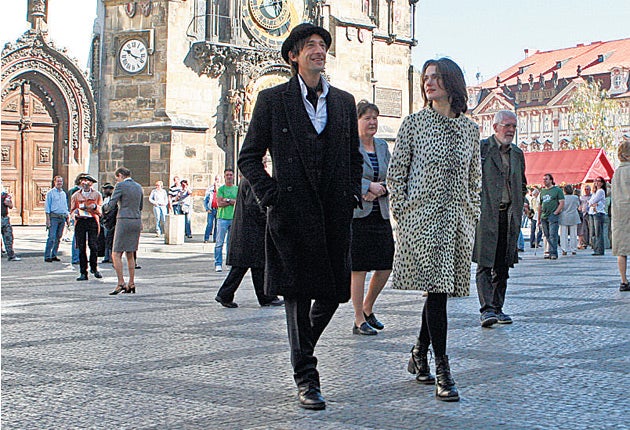The Brothers Bloom (12A)<br/> Videocracy (15)<br/> Kicks (15)
You can fool some people some of the time, but that's not enough

Five years ago, Rian Johnson made his ultra-cool debut film, Brick, a Chandlerian private-eye mystery set in a Los Angeles high school.
His follow-up is almost as distinctive. From a distance, The Brothers Bloom is a comedy about a pair of confidence tricksters, squarely in the tradition of The Sting, Matchstick Men and most of David Mamet's films. It has the requisite anti-heroes, Adrien Brody and Mark Ruffalo, and it has the billionaire, Rachel Weisz, who's just waiting to be gulled by one of their fabulously intricate plots. As in every other con-trick film, there are doubts over who's fooling whom, and there's the risk that one of the men will fall in love with his victim.
But while most other entries in this genre usually have the hard edges of a crime thriller, The Brothers Bloom is a flowery fantasy with a voice-over in rhyming couplets, and a pair of orphaned brothers who wear matching black hats and three-piece suits. Its setting is a romantic, fairy-tale land where people send telegrams and travel by steam train, but they also drive Lamborghinis and use mobile phones. Weisz's character has mastered hundreds of hobbies, from chainsaw-juggling to pin-hole photography, while the brothers are assisted by a Japanese explosives expert who knows only three words of English. It's the world as Wes Anderson and Jack White might want it to be.
The constant playfulness is fun, if sometimes cloying, but it prevents The Brothers Bloom from doing the one thing which con-trick films have to do, and that's con us. At some point, if all these bluffs and double bluffs are to count for anything, the viewer and one of the characters have to invest heavily in a particular reality, only to be floored by the revelation that the aforementioned reality doesn't exist. In this instance, though, everything is so studiedly quirky that there isn't much reality to invest in. In a Gilliamesque belle époque where a Belgian stranger can approach you on the moonlit deck of an ocean liner, and tell you of a priceless Bible hidden in the catacombs beneath Prague castle, who's going to be surprised that there's some deception involved?
Videocracy is a documentary essay about Italy's dumbed-down, undressed, tabloid-TV culture, as pioneered and controlled by Silvio Berlusconi. A horrifying cavalcade of Mussolini-fixated agents and extortionists turned celebrities, it presents a media-political conspiracy that's way beyond satire. When a former sequin-spangled showgirl is appointed as the minister for gender equality, and campaign adverts have smiling beauties chorusing "Thank God Silvio exists", there's nowhere left for Chris Morris to go – although perhaps he could make something of the snap of Tony Blair looking the worse for wear, shall we say, at one of Berlusconi's parties.
Frustratingly, the documentary is slow, superficial and inconclusive, a rough sketch of a film which could have been a present-day La Dolce Vita. But there's enough jaw-dropping raw material to make you grateful that Simon Cowell hasn't yet succeeded in taking Britain the same way.
Not that we can be too smug. Our own toxic addiction to celebrity is probed in a stylish indie drama, Kicks. Kerrie Hayes and Nichola Burley (the star of StreetDance 3D) play two teenagers who are both smitten by Liverpool FC's latest golden boy, Jamie Doyle. One girl thinks that she's genuinely in love with him. The other has the more pragmatic attitude that if you get a boob job, do some modelling and snare a footballer, you're set for life.
They're the kind of WAG-wannabes who are usually treated as walking punchlines, but Kicks, for all its caustic humour, is less dismissive. As the duo's pursuit of their unwitting idol veers between giggly larking and certifiable stalking, Lindy Heymann gives their misadventures a woozy, sickly tinge, and Leigh Campbell's script asks why it is that their ambitions should peak at being served free champagne in a city-centre nightclub. The film collapses at the end, just when it should be building to a climax, but its first hour is worth the ticket price.
Subscribe to Independent Premium to bookmark this article
Want to bookmark your favourite articles and stories to read or reference later? Start your Independent Premium subscription today.

Join our commenting forum
Join thought-provoking conversations, follow other Independent readers and see their replies